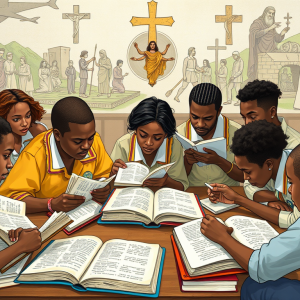Description
Profile for “Fathers of Nations” and “Notes to Fathers of Nations”
Title: Fathers of Nations
Author: Paul B. Vitta
Publication Year: 2022
Overview:
“Fathers of Nations” is a satirical novel that delves into the complexities of leadership and governance in contemporary Africa. Through the lens of humor and keen observation, Paul B. Vitta critiques the political landscape of the continent, highlighting the disillusionment and struggles faced by citizens under the rule of their “fathers of nations.” The novel features a diverse cast of characters, including professors, politicians, and everyday citizens, as they navigate their way through a chaotic political summit in Banjul, Gambia, where key issues concerning Africa’s future are debated.
Key Themes:
- Leadership and Governance: The novel examines the effectiveness of African leaders and the impact of their decisions on the lives of ordinary citizens, exposing the pitfalls of poor governance and corruption.
- Colonial Legacy: Vitta explores how the remnants of colonialism continue to influence contemporary African societies, shaping political dynamics and social structures.
- Social Justice and Accountability: A call to action for citizens to engage in the political process and demand accountability from their leaders, emphasizing the importance of civic participation.
- Identity and Belonging: The narrative reflects on the complexities of African identity in a post-colonial context, addressing the struggles and aspirations of individuals within their societies.
Structure:
The narrative is structured around the events of a summit where fifty heads of state gather to discuss the adoption of “Way Omega,” a development strategy crafted by Nobel laureates. Interspersed with episodic notes, the story captures the conversations, conflicts, and personal journeys of the characters, ultimately revealing the absurdities and challenges of political life in Africa.
Title: Notes to Fathers of Nations
Publication Year: 2022
Overview:
“Notes to Fathers of Nations” serves as a supplementary guide to Paul B. Vitta’s novel, providing detailed episodic notes that enhance the reader’s understanding of the text. Akello Waudi meticulously outlines key events, character developments, and thematic explorations found within “Fathers of Nations.” This analytical companion offers insights into the narrative structure, character motivations, and the socio-political commentary embedded in Vitta’s work.
Content Highlights:
- Character Analysis: The notes provide in-depth descriptions of key characters such as Professor Karanja Kimani, Comrade Ngobile Melusi, Pastor Chineke Chiamaka, and Engineer Seif Tahir, highlighting their backgrounds, motivations, and transformations throughout the story.
- Contextual Background: Waudi elaborates on the political and societal context of the novel, discussing the challenges faced by African nations, the impact of colonialism, and the contemporary issues that resonate with the characters’ experiences.
- Comprehension Questions: The notes include thought-provoking questions that encourage readers to engage critically with the text, promoting discussions around themes of leadership, governance, and social justice.
- Analysis of Styles and Devices: Waudi examines the literary techniques used by Vitta, such as dialogue, vivid descriptions, and irony, illustrating how these elements contribute to the overall impact of the narrative.
Purpose:
The primary aim of “Notes to Fathers of Nations” is to enrich the reading experience of “Fathers of Nations” by providing a framework for deeper comprehension and analysis. It serves as a valuable resource for students, educators, and literary enthusiasts who seek to explore the themes and messages within Vitta’s work in greater detail.
Author Profile: Paul B. Vitta
Biography:
Paul B. Vitta is a contemporary African novelist and playwright known for his incisive exploration of socio-political issues in Africa. Born and raised in Kenya, Vitta’s academic background includes a degree in literature, which has significantly influenced his writing style and thematic choices. His experiences in various African countries have shaped his understanding of the complexities of leadership, governance, and societal challenges across the continent.
Literary Works:
Vitta is best known for his satirical novel “Fathers of Nations,” which critiques the leadership of African states and the lingering effects of colonialism. The novel employs humor and sarcasm to highlight issues such as corruption, poor governance, and the disillusionment of citizens with their leaders. Through a cast of diverse characters, Vitta poignantly portrays the struggles faced by ordinary Africans in their quest for social justice and political accountability.
In addition to “Fathers of Nations,” Vitta has written several plays and essays that address similar themes, showcasing his versatility as a writer. His works often reflect his deep concern for the future of Africa and the need for transformative leadership.
Writing Style:
Paul B. Vitta’s writing is characterized by its sharp wit, vivid imagery, and engaging dialogue. He skillfully blends humor with serious commentary, making his critiques accessible to a broad audience. His ability to create relatable characters allows readers to connect with the broader societal issues he addresses. Vitta’s use of satire serves as a powerful tool for social commentary, encouraging readers to reflect on the state of governance and the role of citizens in shaping their destinies.
Themes:
The central themes in Vitta’s works include:
- Leadership and Governance: A critical examination of the effectiveness and accountability of African leaders.
- Colonial Legacy: An exploration of how colonial history continues to shape contemporary African societies.
- Social Justice: A call for activism and engagement among citizens to demand their rights and advocate for change.
- Identity and Belonging: A reflection on the complexities of African identity in a post-colonial context.
Impact:
Paul B. Vitta has established himself as an important voice in African literature, providing a platform for discussions about governance, social issues, and the future of the continent. His works resonate with readers both in Africa and internationally, contributing to the global discourse on development and democracy. Through his storytelling, Vitta inspires hope and encourages critical thought about the path forward for African nations.



Reviews
There are no reviews yet.